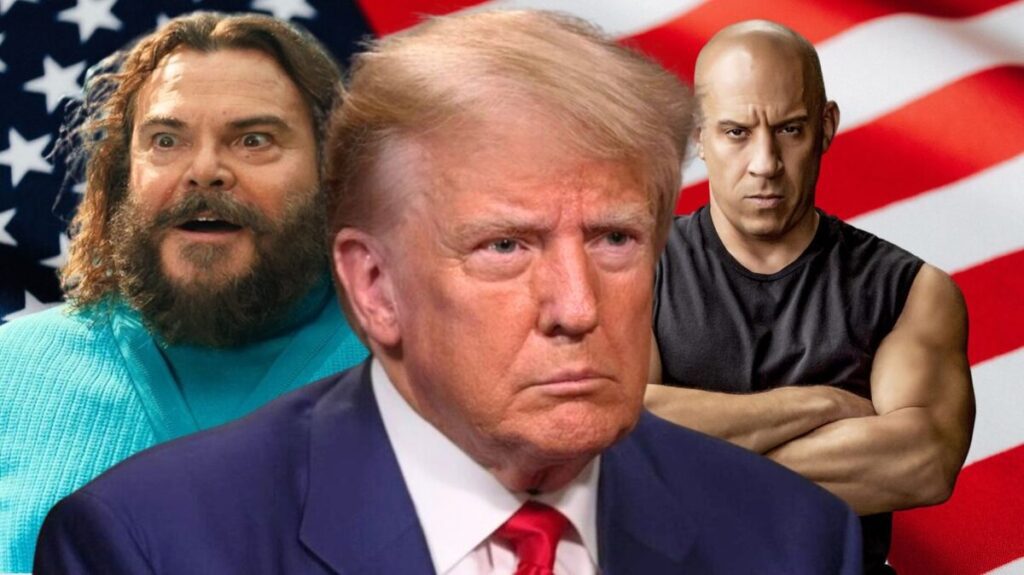The ripple effects of recent trade tensions are hitting more than just factories and stock markets — Hollywood itself is feeling the strain. With American blockbusters relying heavily on global markets for their success, any shake-up in international relations, especially between the U.S. and China, threatens to reshape the entertainment landscape as we know it.
A Global Stage Under Threat
American films have long been a cultural export, enjoyed worldwide and, importantly, a major source of revenue. But geopolitical moves can quickly turn the tide. On April 2, 2025, the U.S. President announced a sweeping increase in tariffs across various sectors, marking what many called the beginning of an intense trade war. While much attention went to industrial goods, the cultural sphere was not spared from uncertainty.
I recall discussing this with a friend who works in film distribution; the mood was tense. Studios feared that the new tariffs could complicate the export of physical media or promotional materials, and even digital content could face hurdles depending on evolving policies.
Industry Reactions: Nintendo’s Cautionary Tale
Around the same time, Japanese giant Nintendo unveiled its Switch 2, only to promptly delay preorders in the U.S. citing a need to “assess potential tariff impacts.” This move reflected broader anxieties across tech and entertainment industries about how sudden changes in trade policy might disrupt supply chains and consumer pricing.
While video games and consoles may seem far removed from the film world, their intertwined supply and marketing networks mean shifts in one often echo in the other. Hollywood insiders took note: if Nintendo was stepping back, would major studios follow?
Hollywood’s Uncertain Future Amid Tariff Talks
Initially, there was some relief as tariffs appeared focused on goods rather than services — leaving film and TV sales within the U.S. largely untouched. Moreover, the administration paused the tariff hike for 90 days starting April 9, stalling retaliatory moves from the European Union and calming jittery markets.
Yet, these temporary reprieves do not erase longer-term risks. The film industry depends heavily on Chinese box office receipts. Movies like the Fast & Furious franchise rake in hundreds of millions there, sometimes eclipsing domestic earnings. As one Hollywood executive told me, “Losing easy access to China’s audience could be devastating.”
China: The Pivotal Market
China’s role in global film distribution cannot be overstated. According to the Motion Picture Association, China surpassed the U.S. as the world’s largest box office market in recent years. Many studios tailor content to appeal to Chinese viewers or collaborate with local companies to navigate regulatory hurdles.
Trade conflicts raise fears that Chinese regulators might tighten film import quotas or delay approvals, further squeezing American studios. This would not just hurt revenues but also dampen Hollywood’s influence abroad.
Looking Ahead: Navigating a New Reality
For now, industry watchers are in wait-and-see mode. The pause on tariffs gives breathing room, but the broader political climate signals continued tension. The entertainment sector may need to diversify, investing more in local productions or alternative markets.
It’s a stark reminder that in today’s interconnected world, Hollywood’s fate is tied as much to boardrooms and backlot decisions as it is to diplomatic cables and trade negotiations. As viewers, we might soon see fewer of those globe-trotting action scenes from franchises like Fast & Furious—all thanks to a trade dispute playing out far beyond the silver screen.

Meet Bill, a curious mind with a rebellious streak and a shared enthusiasm for lifestyle and culture. Like his longtime collaborator William, he’s captivated by the pulse of current events. But Bill brings a twist, he thrives on spontaneity, often following instinct over convention. His unconventional flair adds a dynamic edge to the team, making every project a little less predictable and a lot more exciting.













